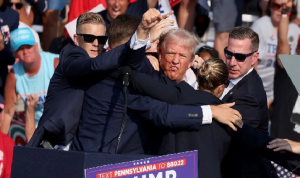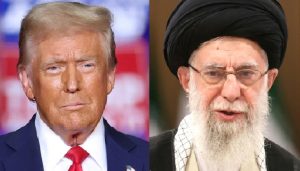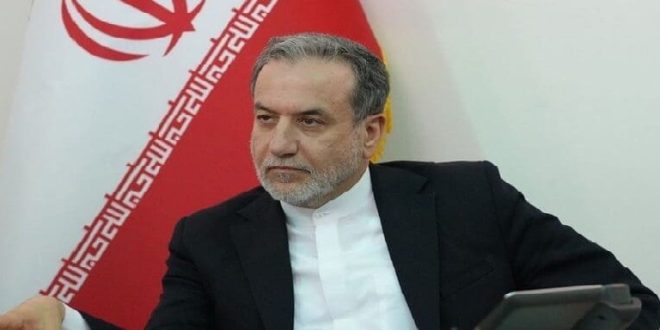11-11-2024
TEHRAN/ DUBAI: Iran’s Foreign Minister Abbas Araqchi denied U.S. charges that Tehran was linked to an alleged plot to kill Donald Trump and called on Saturday for confidence-building between the two hostile countries.
“Now … a new scenario is fabricated … as a killer does not exist in reality, scriptwriters are brought in to manufacture a third-rate comedy,” Araqchi said in a post on X.
 He was referring to the alleged plot which Washington said was ordered by Iran’s elite Revolutionary Guards to assassinate Trump, who won Tuesday’s presidential election and takes office in January.
He was referring to the alleged plot which Washington said was ordered by Iran’s elite Revolutionary Guards to assassinate Trump, who won Tuesday’s presidential election and takes office in January.
“The American people have made their decision. And Iran respects their right to elect the President of their choice. The path forward is also a choice. It begins with respect,” Araqchi said.
“Iran is NOT after nuclear weapons, period. This is a policy based on Islamic teachings and our security calculations. Confidence-building is needed from both sides. It is not a one-way street,” he added.
Iranian Foreign Ministry spokesperson Esmaeil Baghaei said earlier that the claim was a “repulsive” plot by Israel and the Iranian opposition outside the country to “complicate matters between America and Iran”.
Iranian analysts and insiders have not dismissed the possibility of a detente between Tehran and Washington under Trump, although without restoring diplomatic ties.
“Iran will act based on its own interests. It is possible that secret talks between Tehran and Washington take place. If security threats against the Islamic Republic are removed, anything is possible,” Tehran-based analyst Saeed Laylaz said this week while facing off against arch-foe Israel, Iran’s clerical leadership is also concerned about the possibility of an all-out war in the region, where Israel is engaged in conflicts with Tehran’s allies in Gaza and Lebanon.
Donald Trump’s victory in the US presidential election drew mixed reactions among ordinary Iranians, with some fearing a heightened risk of war and economic hardship but others hoping his hardline stance might bring political change in Iran.
 “I am so glad Trump won. I hope he continues his maximum pressure on the Islamic Republic and that it leads to the collapse of this regime,” housewife Zohre, 42, told media.
“I am so glad Trump won. I hope he continues his maximum pressure on the Islamic Republic and that it leads to the collapse of this regime,” housewife Zohre, 42, told media.
Some Iranians like retired teacher Hamidreza feared further economic pressure with Trump in the White House if he continues the same tough policy he adopted in his 2017-2021 first term.
“I am disappointed Trump won. It means more economic pressure, the risk of a war with Israel. I am deeply concerned,” said Hamidreza, 66, in the northern city of Rasht. “I don’t care who the US president is. My main concern is Iran’s economy. If they lift sanctions on Iran, that would be a good thing,” said government employee Nader, 34, a father of two in the southern city of Ahvaz.
“Everyone is happy, and I am thrilled. Trump is a no-nonsense leader who will put pressure on the clerical rulers. This is good for the Iranian people who seek a democratic leadership,” said Parastou, a 21-year-old student in Tehran.
Like Zohre, Hamidreza and Nader, Parastou declined to be identified in full due to the sensitivity of the issue. Publicly, Iranian political leaders have downplayed the significance of the U.S. election result on Tehran’s policies.
However, the establishment’s main concern is the potential for Trump to empower Israeli Prime Minister Benjamin Netanyahu to strike Iran’s nuclear sites, conduct assassinations and re-impose his “maximum pressure” policy through heightened sanctions on the country’s oil industry. (Int’l News Desk)
 Pressmediaofindia
Pressmediaofindia




